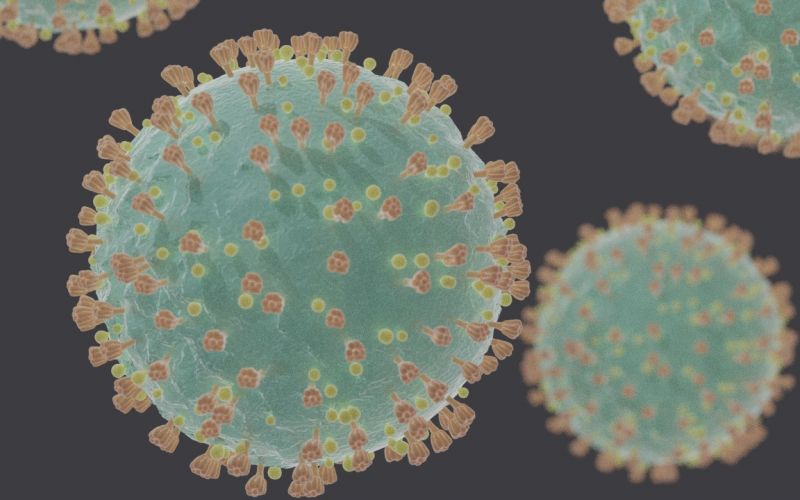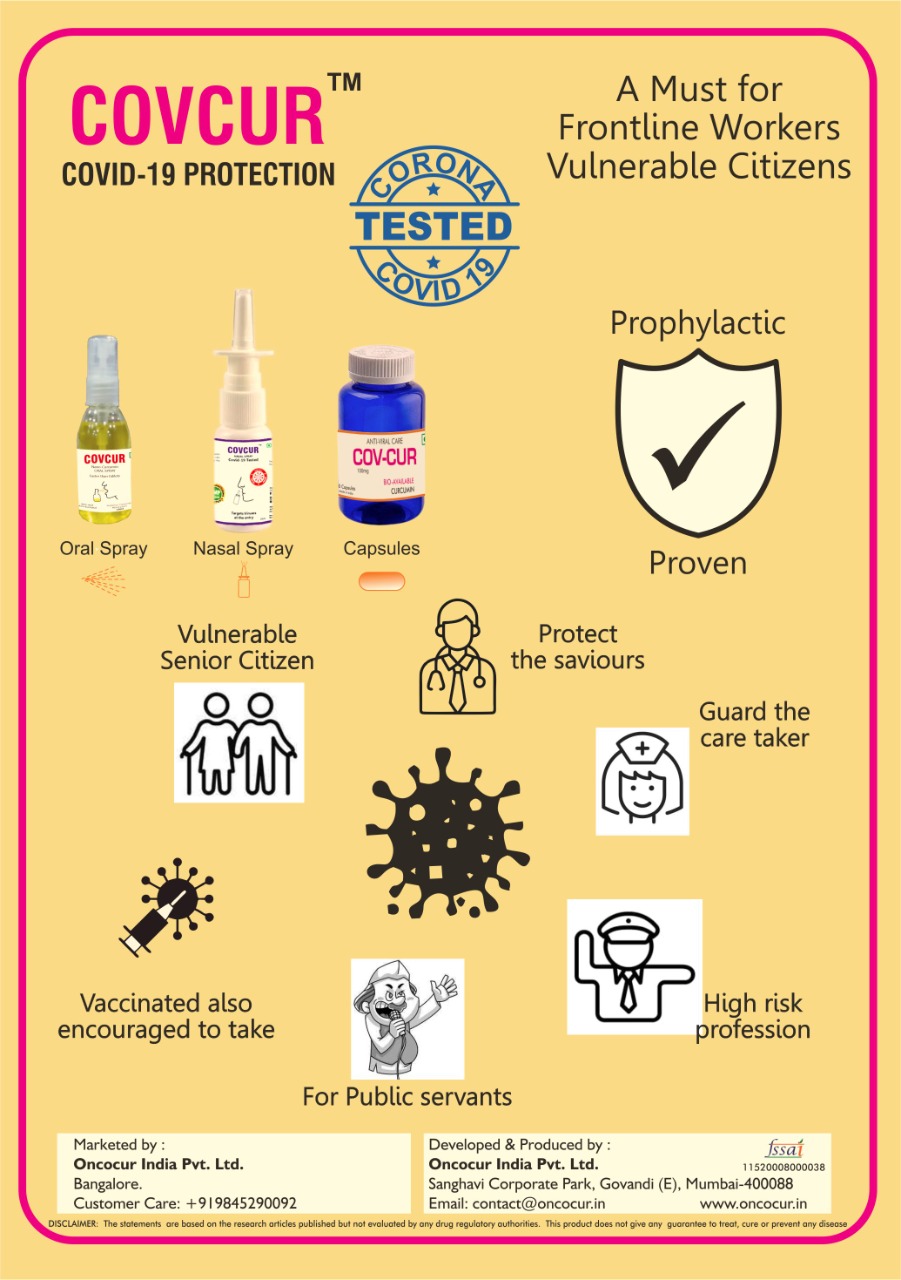
Vijay Kanuru has developed nano-curcumin-based oral and nasal sprays that protect against Covid-19 infection.
The world can’t afford any more lockdowns and can’t rely on vaccine boosters to get through each new wave of Covid.
Dr Vijay Kanuru
An oral and nasal spray that aims to give added protection against Covid-19 has been developed by a Gates Cambridge Scholar.
Dr Vijay Kanuru, a Pune-based nanotech inventor and scientist, has developed the world’s first nano-curcumin-based oral and nasal sprays that protect against Covid-19 infection.
Amid another wave of Omicron cases, with many who have been vaccinated being infected, there are concerns that the effectiveness of the vaccine may wane after a few months and that the hope that the virus would evolve to be milder might not be true for all people.
Dr Kanuru says: “The world can’t afford any more lockdowns and can’t rely on vaccine boosters to get through each new wave of Covid. No two people share precisely the same exposure history. Therefore safer personalised prophylactic and pre-emptive solutions may offer first-hand protection against any new variants in the future.”
“While vaccines greatly reduce the odds of hospitalisation and deaths, the limitation of Covid-19 vaccines is that they don’t offer sterilising immunity against emerging corona strains, especially to vulnerable populations.”
He adds that Omicron and its sub variant BA.2 have managed to mutate almost every amino acid residue targeted by protective antibodies, escaping protection.
He is concerned that a strategy of issuing mRNA boosters in perpetuity may not be fit for purpose and could potentially lead to unpredictable consequences, such as an increase in autoimmune diseases and cancers due to the way they breach the cell nucleus and fuse with human DNA.
He says that oral and nasal cavities are gateways to disease and are in large part responsible for infections that break through the vaccines, as they are places where vaccine-induced antibodies have more limited capacity to neutralise the replicating viruses. Covid can directly infect and replicate in oral tissues, such as the salivary glands (SGs) or mucosa. Oral mucosa play an important role in transmitting the virus to the lungs or the gastrointestinal tract via saliva. As a result salivary glands become the incubators for viral production, mutant evolution and eventually become a source of transmission.
Dr Kanuru adds that oral transmission is alarmingly high particularly in schools, on flights, at social events and in offices where people have to remove their masks and where mask compliance may not be high in the first place.
 COVCUR Nano-curcumin Oral and Nasal Spray is an over-the-counter food supplement applied to oral and nasal mucosa to prevent infections, reduce disease duration and soothe symptoms by increasing viral clearance of airborne viral infections, including coronaviruses. Dr Kanuru says curcumin is a promising polyphenol group of food molecules which has been previously shown to be effective in a wide range of respiratory viruses such as rhino, influenza or common cold coronaviruses. Research studies show that Nano-Curcumin blocks virus entry into cells by prohibiting spike protein via binding the ACE II receptor on the epithelial cell membrane surface.
COVCUR Nano-curcumin Oral and Nasal Spray is an over-the-counter food supplement applied to oral and nasal mucosa to prevent infections, reduce disease duration and soothe symptoms by increasing viral clearance of airborne viral infections, including coronaviruses. Dr Kanuru says curcumin is a promising polyphenol group of food molecules which has been previously shown to be effective in a wide range of respiratory viruses such as rhino, influenza or common cold coronaviruses. Research studies show that Nano-Curcumin blocks virus entry into cells by prohibiting spike protein via binding the ACE II receptor on the epithelial cell membrane surface.
COVCUR is the world’s first nano-curcumin oral spray, made and developed in India which has been scientifically tested for its prophylactic activity at the National Immunogenicity Biologics Evaluation Centre in Pune under the Indian Government’s National Biopharma Mission.
Dr Kanuru [2006], who did his PhD in Chemistry at the University of Cambridge, says: “COVCUR offers a personal Covid protection kit for travellors and for use in crowded settings, which is ideal for immune-compromised vulnerable citizens, especially in light of evolving pathogens and bio warfare threats.”
The product has been endorsed by several doctors, dentists and academics in India.
Professor Dr Pradyut Waghray, Head of Pulmonary Medicine and a Senior Consultant Pulmonologist at Apollo Super Speciality Hospitals in Hyderabad, said: “Nano Curcumin not only prevents the entry of SARS-COV-2 virus into the cell, but it also prevents viral replication and inhibits the production of various cytokines which are responsible for causing the so-called cytokine storm. In the scenario of waning Covid-19 vaccine efficacy, Nano Curcumin, by stimulating both the innate and adaptive arms of the immune system enhances the production of virus specific CD4+T cells, helping in complete virus clearance. And also by stimulating virus specific memory CD8+T cells, it helps in preventing recurrence of Covid infection for many years. Nano Curcumin increases the bioavailability and helps in preventing transmission of infection when given in nasal/oral sprays.”
*Picture credit: Felipe Esquivel Reed and Wikimedia commons.












